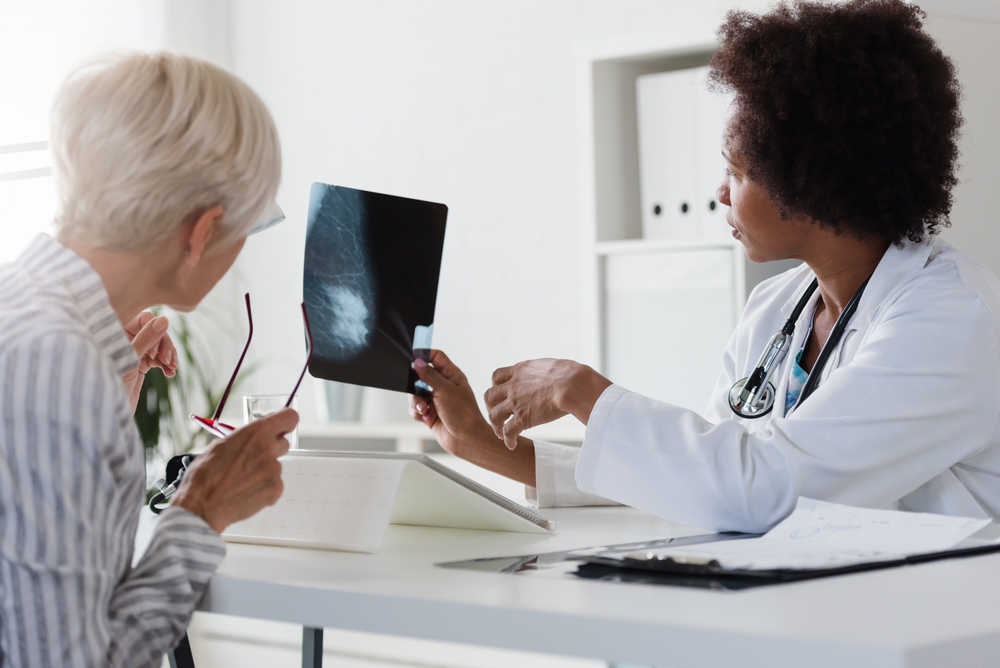
Breast cancer is a pervasive health issue that affects many women worldwide. It is an abnormal growth of cells in the breast that form a mass or lump, termed as a tumor. These tumors can be benign or malignant, with the latter being cancerous and having the potential to spread to other parts of the body. This disease has significant implications for women's health, leading to physical, emotional, and psychological distress. Early detection and accurate diagnosis are crucial in managing and treating breast cancer effectively.
Understanding Breast Cancer Diagnosis
The diagnosis of breast cancer involves a comprehensive health evaluation, including a physical examination, patient history, and diagnostic tests such as mammograms, breast ultrasounds, and MRI's. These tests help medical professionals evaluate the presence, size, and location of the tumor, as well as determine whether the cancer has spread to surrounding tissue or other parts of the body. However, as with any medical diagnosis, there is always room for error, and misdiagnosis can have serious consequences.
To address this, many individuals facing a breast cancer diagnosis are choosing to seek a second opinion. This is where another medical professional or team reviews the patient's medical records and diagnostic tests to confirm or challenge the initial diagnosis. The process of obtaining a second opinion can provide additional perspectives, shed light on new information, and ultimately lead to more accurate diagnosis and treatment.
The Importance of Second Opinion Consultations in Breast Cancer Diagnosis
Second opinion consultations have become an integral part of the breast cancer diagnosis process. They serve to validate the initial diagnosis, provide clarity, and ensure the most effective treatment plan is identified. Second opinion consultations can be particularly beneficial in complex or rare cases, where the initial diagnosis might be challenging or unclear.
Second opinion consultations can help to alleviate the fears and anxieties associated with a cancer diagnosis. They provide an opportunity for patients to ask questions, gain a deeper understanding of their condition, and establish confidence in their diagnosis and treatment plan. Patients can also engage in a dialogue about their values, preferences, and concerns, ensuring that their treatment plan aligns with their personal wishes and lifestyle.
The Role of Breast Ultrasound, Mammograms, and MRI's in Detecting Breast Cancer
Breast ultrasound, mammograms, and MRI's play a fundamental role in detecting and diagnosing breast cancer
Mammograms are a type of low dose X-ray that provides detailed images of the breast tissue. Mammograms are the gold standard in detection of breast cancer, and usually, the first line of defense in breast cancer screening. Mammograms can detect the earliest signs of breast cancer, presenting as microscopic calcifications, and can detect other early signs of cancer before a lump is even felt.
Breast ultrasound is a non-invasive imaging technique that uses high-frequency sound waves to produce images of the breast tissue. There is no radiation associated with breast ultrasound. This test can help detect breast abnormalties, that may not be palpable (felt by your doctor) during a physical examination and can distinguish between fluid-filled cysts and solid masses. Breast ultrasounds can also detect certain types of breast cancers, that may hide in the dense breast tissue, on the mammogram.
MRI's provide a different view of the breast tissue, mostly looking for abnormal blood flow. This imaging technique uses a powerful magnetic field to create detailed images of the breast and surrounding tissues. MRI's can sometimes detect certain types of cancers not visible on a mammogram or ultrasound, especially in women with dense breast tissue, making it a valuable tool in the breast cancer detection arsenal. MRI’s also also useful in screening women with high risk for breast cancer.
The Impact of Second Opinion Consultations on Accuracy in Diagnosis
Second opinion consultations can significantly impact the accuracy of a breast cancer diagnosis. They can identify misdiagnoses, provide insight into the extent of the disease, and present alternative treatment options. A study published in the American Journal of Roentgenology found that second opinion consultations changed the diagnosis in 43% of breast cancer cases.
In addition to improving the accuracy of the diagnosis, second opinion consultations can also provide reassurance to the patient. This reassurance can lead to better psychological outcomes, increased satisfaction with care, and improved adherence to treatment plans.
A second opinion can also give patients a sense of control over their health. It allows them to be active participants in their care, making informed decisions based on comprehensive information. This empowerment can lead to increased confidence, decreased anxiety, and improved overall well-being.
Same Visit Results at Arizona Breastnet
Arizona Breastnet is a leading provider of breast imaging services, including breast ultrasounds, mammograms, and breast biopsies. One of our unique offerings is the provision of same visit results. This means that patients all speak with the doctor at the time of their visit. The doctor reviews their imaging that day, and the patients receive their diagnostic results on the same day of their visit, eliminating the stressful waiting period that is often associated with diagnostic testing.
Same visit results not only expedite the diagnosis process but also allow for immediate consultation and discussion of the results. If abnormalities are detected, the medical team can quickly formulate a plan of action, reducing the time between detection and treatment.
Receive the Reassurance You Deserve
Second opinion consultations for breast ultrasounds, mammograms, and MRI's play a crucial role in the detection and diagnosis of breast cancer. They offer a valuable opportunity for patients to confirm their diagnosis, explore alternative treatment options, and gain a deeper understanding of their condition. They can provide peace of mind and reassurance during a challenging time.
If you've had a breast ultrasound, mammogram, or MRI, consider getting a second opinion and have the reassurance you deserve. Schedule a consultation with our professionals at Arizona Breastnet. We are here to provide the expert, compassionate care you need. Visit our office in Scottsdale, Arizona, or call (480) 314-7600 to book an appointment today.











